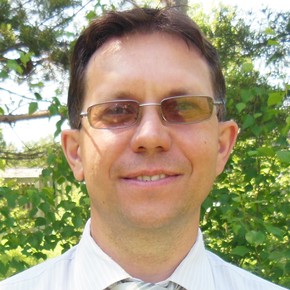Biography
Security forces suspected Yevgeniy Bitusov, an electrician from a small town in the Far East Region of Russia, of extremism because of his belief in Jehovah God. Talking to others about the Bible and about Christian values was considered a crime.
Yevgeniy was born in February 1979 in the city of Zeya. He has an older sister. Their mother, a lifelong resident of Zeya, worked as an accountant, and their father was a driver who came from Siberia to help build the Zeya Hydroelectric Power Station. When Yevgeniy was three years old and his sister was ten, his father died in a car accident.
As a child, Yevgeniy attended clubs and groups for swimming and soccer that were available in the city, but most of all he loved sports tourism and skiing. In addition, he enjoyed repairing electronics.
After school, Yevgeniy became an electrician at a training and production plant. Then he attended a local technical school, where he mastered the skill of joiner-carpentry. Later, Yevgeniy worked as a tractor driver and even received an honorary title in this field. For a long time, he worked with satellite television; he later worked as an electrician and a builder.
In his teenage years, Yevgeniy became familiar with Bible principles because his mother and older sister read the Bible regularly. However, his real faith in God developed later. This was largely thanks to his decision to seek out good friends and to brake off friendships with those who had a bad influence on him.
In 2001 Yevgeniy married Nadezhda, who is a paramedic. They had two children—a son in 2002 and a daughter in 2010. Nadezhda worked for several years as a nurse in a trauma center, then she worked for sixteen years as a confectioner, and then she again changed her occupation and became a manicurist.
Yevgeniy said: “Because of the criminal prosecution, anxiety became part of our life; this affected Nadezhda's health. The family budget was also affected, as I had to buy things to replace what had been confiscated.”
Relatives and acquaintances are outraged that deeply religious people who live according to Bible standards are considered criminals, dangerous to society and to the state.
